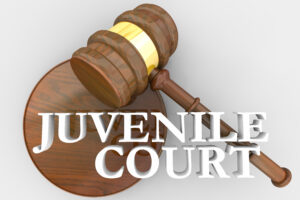
You’re considered an adult when you turn 18 in a number of ways, including in the eyes of the court system in Minnesota. Once you turn 18, you’ll find that you’ll be charged as an adult in the event that you commit a crime. However, that doesn’t mean that you’ll always be charged in juvenile court if you end up in handcuffs before you turn 18. Depending on your age and the severity of your crime, it’s certainly possible for someone under the age of 18 to be tried as an adult.
Juvenile court and “adult” court vary in a few different ways, and we’re going to spotlight some of the main differences between the two court systems in Minnesota in today’s blog.
Juvenile Vs. Adult Court In Minnesota
The two court systems have vary similar foundations, but you’ll notice some major and some minor differences between the two. Here’s a closer look at some of the differences between the two courts.
Judges Vs. Juries – In the adult court system, a defendant chooses whether a judge or a jury of their peers will hear their case. In juvenile court, cases are only heard by a judge. This helps to speed up the process, but it also means you won’t have the benefit of multiple individuals hearing your case. Only one person will be deciding your innocence or guilt.
Rehabilitation Focused – While the goal of both court systems is to prevent recidivism, juvenile court will be much more focused on ensuring the offender learns how to make better decisions going forward. Juvenile sentences are more likely to involve community service and education/rehabilitation courses than adult court.
Open Vs. Closed Hearings – Except in very rare or sensitive situations, all adult cases are open to the public in Minnesota. Conversely, juvenile court cases are closed to the public.
Expungements – According to Minnesota Statute section 260B.198, subd. 6, a juvenile offender may apply to have their record expunged at any time. For adult offenders, they often have to wait for a set period of time before they would be eligible to have their case expunged. There is no guarantee that early petition for expungement will be successful for juvenile offenders, but because expungement is partly based on the harm the conviction is causing a person compared to the risk to the public caused by expunging the crime, it’s oftentimes easier for juveniles to get their criminal record expunged.
Whether you’re charged as a juvenile or adult, one of the single best things you can do is to have an experienced criminal defense layer by your side. For more information, or for help with your criminal case, reach out to Avery and the team at Appelman Law Firm today at (952) 224-2277.





